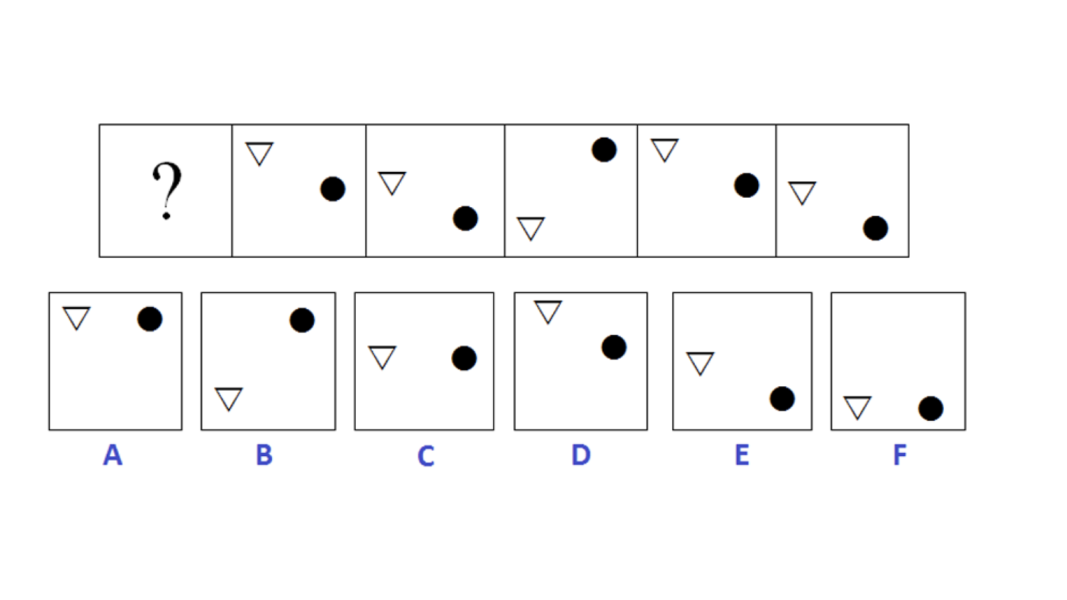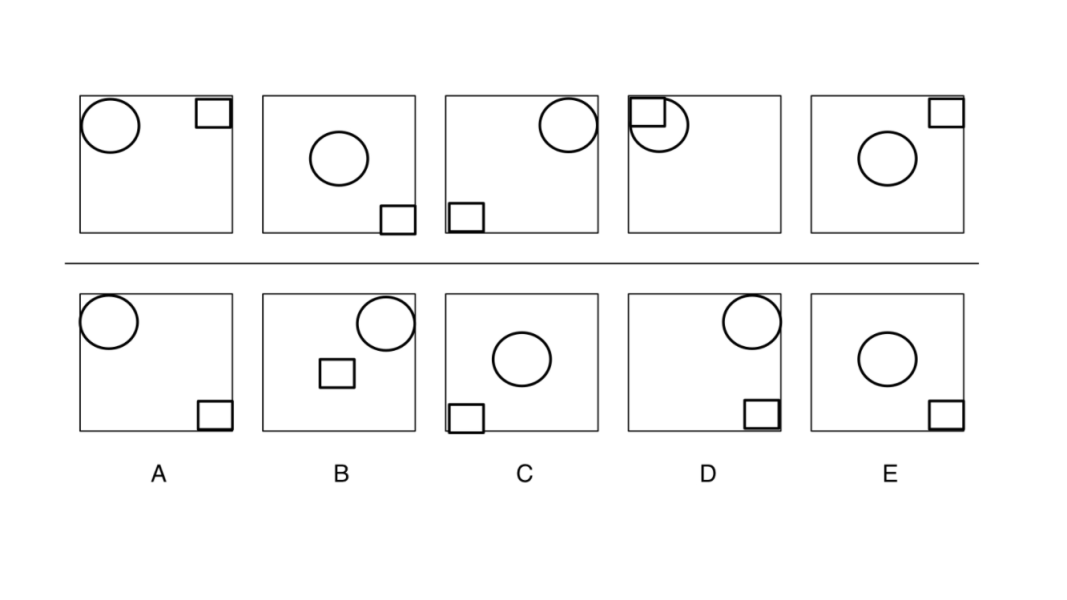What is a non-verbal reasoning test?
A non-verbal reasoning test is an assessment that evaluates a candidate’s intelligence and the ability to interpret visual information. This might include finding relationships between shapes and patterns, recognising a sequence and identifying what will come next, or visualising changes and movements in 2D or 3D shapes.
Crucially, the tests do not assess language skills; verbal competency is not needed to solve the problems. No prior knowledge is necessary for non-verbal reasoning questions.
Why do employers use non-verbal reasoning tests?
Non-verbal reasoning tests are widely regarded as a good measure of a candidate’s general intelligence and capacity to solve problems. Problem-solving is a crucial skill in any workplace, so many employers see these tests as an effective way to help identify the best candidates.
They are particularly favoured by employers recruiting for roles that require a high degree of technical ability and may also be used to assess leadership potential, for instance in graduate recruitment schemes.
Because the tests do not require candidates to draw on any prior knowledge or learned skills, such as language, they can be a better measure of innate talent or potential than other types of assessment. They are also useful for roles where applicants speak different languages, as they can all take the same test on an equal footing.
Additionally, non-verbal reasoning tests level the playing field by eliminating cultural and educational biases, making them a preferred choice for global companies looking to recruit from a diverse talent pool. This unbiased approach ensures that candidates are evaluated purely on their cognitive abilities, making these tests a cornerstone in the selection process for roles where critical thinking and problem-solving are paramount.
Types of non-verbal reasoning tests
As mentioned earlier, ‘non-verbal reasoning’ is an umbrella term for a number of different aptitude tests. Broadly speaking these fall into two categories:
1) Tests where the candidate must understand the logic or pattern behind a sequence of shapes. Tests of this type may be referred to by various names, including diagrammatic, abstract, inductive and logical reasoning.
2) Tests that measure a candidate’s spatial awareness and ability to visualise changes and movements in 2D and 3D shapes. These are known as spatial reasoning or spatial awareness tests.
Let’s look at each of those test types in more detail:
Diagrammatic reasoning tests
These assess a candidate’s ability to think logically by presenting problems in the form of diagrams. You will need to study a flow chart or series of diagrams to work out the rules governing them, and then apply those to new situations.
The test is timed and generally candidates will have half an hour to complete 20 questions, with the problems becoming progressively more difficult. Our article on diagrammatic reasoning tests provides more detail on what to expect, along with free example questions.
Inductive reasoning tests
Inductive reasoning tests also require candidates to apply their logical skills to solve visual problems. The applicant must look for patterns, relationships and similarities in a series of images and then choose an answer which fits best with these.
In inductive reasoning the solution is only probable, based on the information provided, as opposed to deductive reasoning where the solution is certain. Again, the tests are taken under strict time constraints so candidates must work quickly and accurately.
Read our article for more on inductive reasoning tests and to try free practice questions.
Abstract reasoning tests
Abstract reasoning tests are similar to inductive reasoning tests and the terms are sometimes used interchangeably. You will be presented with a collection of patterns or shapes and must find how they are related – for instance in terms of shape, colour or size.
You must then apply this relationship to answer questions, which might include selecting the correct option to complete a sequence or deciding which image is the odd one out. You will have a minute or less to solve each problem, so must be able to apply your lateral thinking skills at speed.
Check out our full article on abstract reasoning tests, where you can also try some example questions.
Spatial awareness tests
Also known as spatial reasoning tests, these types of questions assess your ability to manipulate shapes in your mind, visualising how they may change or move.
They may be used in jobs where you will need to create or interpret drawings and plans, such as design or engineering, as well as for jobs in the police or military.
Questions may refer to two- or three-dimensional shapes and could involve reflection, rotation or assembling and disassembling shapes. This article on spatial reasoning tests explains the tests further and also includes some example questions.
How to prepare for a non-verbal reasoning test
Practice. While non-verbal reasoning tests are designed to assess general intelligence and do not require prior knowledge, you will undoubtedly do better if you know what to expect and have practised example questions.
Find out what type of test you will be set and then complete as many relevant practice tests as you can. If you are familiar with the questions, you will be able to think much more calmly and clearly on the day.
Learn from your mistakes. Make sure you check back through every test for errors and work on improving your accuracy. Note which types of questions you struggle with the most and focus on developing strategies for approaching these.
Try your hand at puzzles. As well as doing practice tests, problem-solving puzzles are another good way to develop your logical and reasoning skills. Look for puzzle books and apps that include a range of different types of puzzles.















